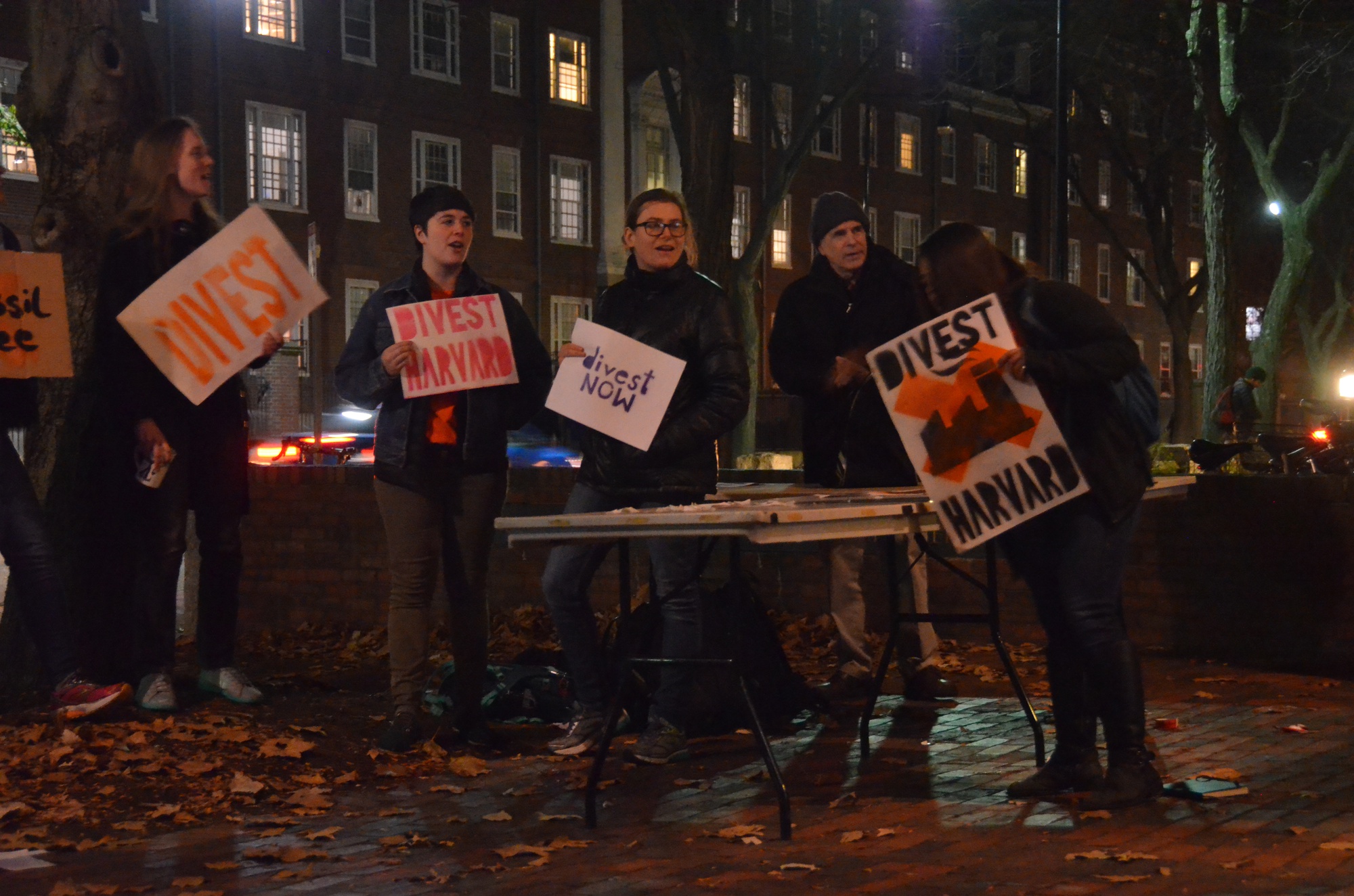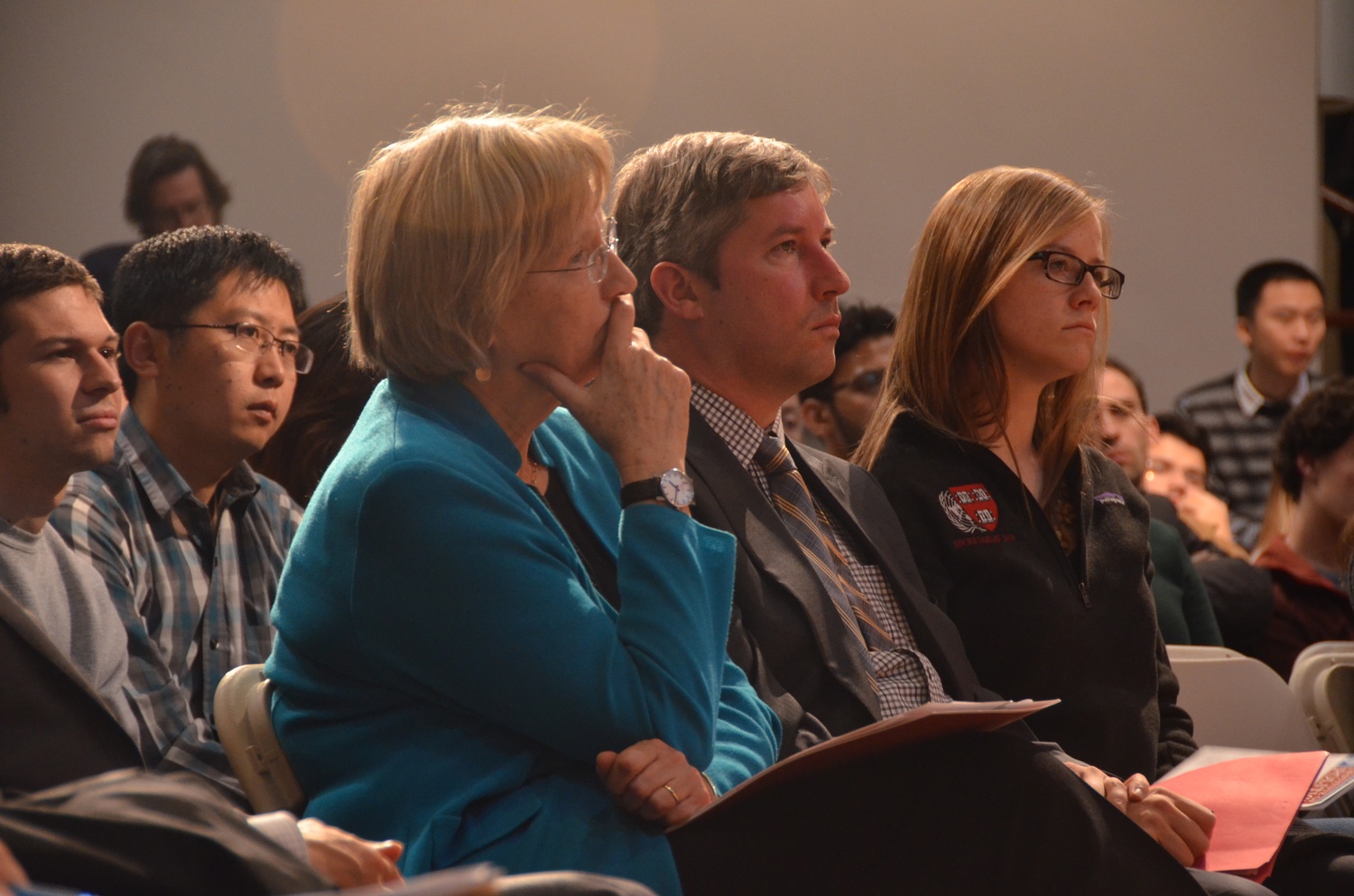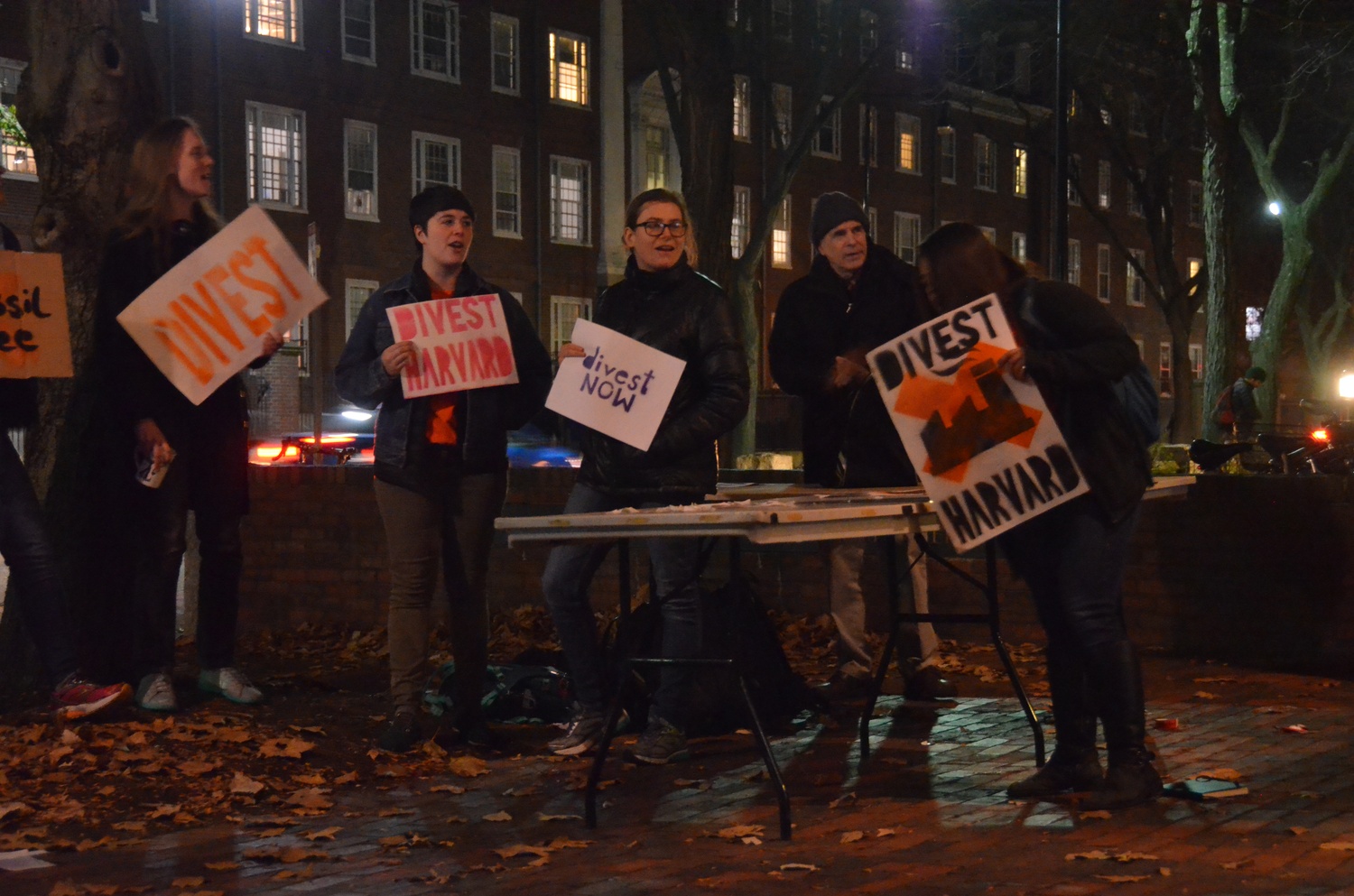
News
Harvard Grad Union Agrees To Bargain Without Ground Rules

News
Harvard Chabad Petitions to Change City Zoning Laws

News
Kestenbaum Files Opposition to Harvard’s Request for Documents

News
Harvard Agrees to a 1-Year $6 Million PILOT Agreement With the City of Cambridge

News
HUA Election Will Feature No Referenda or Survey Questions
Climate Change Panelists Address Upcoming U.N. Conference

UPDATED: November 17, 2015, at 8:21 p.m.
Despite significant political hurdles, this month’s 2015 United Nations Climate Change Conference in Paris represents a potentially groundbreaking step forward in controlling global emissions, panelists argued at the Kennedy School of Government on Monday.
As University President Drew G. Faust and panelists spoke, members of activist group Divest Harvard, as well as local activists, protested outside the Kennedy School, chanting for immediate “climate justice.”

The event inside, moderated by Vice Provost for Research Richard McCullough, was the second in a series of University-wide discussions on climate change and was co-hosted by the Office of the President and McCullough’s office.
The first, held last April during a blockade of Massachusetts Hall by Divest Harvard, came after several requests for an open forum made by Harvard Faculty for Divestment, a group of 261 faculty from across Harvard who have signed an open letter urging the University to end its investments in fossil fuel companies.
“Climate change represents a defining issue for our moment in history, one of the paramount challenges of our time,” Faust said during brief opening remarks. “And our challenge is not just to diagnose the problem and the profound hazards that it represents—our challenge is to step up and find effective solutions.”
“My hope is…[advocates for divestment] would begin to focus more on policies that would make a real difference as opposed to policies that make us feel good or look good but don’t really do something about the problem,” Kennedy School professor Robert N. Stavins said, reiterating the Faust’s stance that research, and not symbolic action, is the University’s core contribution to the climate change effort.
Panelist Coral Davenport, who reports on energy and climate change policy for the New York Times, said during the event that though the Paris talks in many ways seem similar to the discussions leading up to the “partial measures” of the 1997 Kyoto Protocol and 2009 Copenhagen Accord, the fact that the U.S. is now entering the discussions with a climate policy on the table is potentially game-changing.
Davenport said, however, that even if a global accord is reached with wide international support, the world will still have a long way to go towards capping global temperatures at two degrees Celsius above the pre-industrial average, the long-term goal of the United Nations Framework Convention on Climate Change.
Stavins said he agreed with Davenport, saying that the new approach of putting all countries under the same legal framework—rather than giving different commitments to OECD countries and others as was done under the Kyoto Protocol—is a significant step forward.
Many countries have also submitted public Intended Nationally Determined Contributions documents in anticipation of the conference, outlining their expected contribution to combatting climate change after 2020 with varying levels of commitment depending on a country’s level of economic development, Stavins said.

“‘Common but differentiated responsibilities and respective capabilities’—that is part of the framework convention under which all of these negotiations are taking part,” Stavins said. “The agreement that will be reached in Paris does not reject that, it does not repeal that—it’s working under that.”
The panelists also discussed how the political climate in Washington and the Senate’s opposition to U.S. President Barack Obama’s energy policy will affect the United States’ role in the proceedings.
For his part, Zou Ji, deputy director general of the National Center for Climate Change Strategy and International Cooperation under the National Development and Reform Commission in China, said he was concerned whether the U.S.’s INDC targets could be implemented regardless of the party in power, especially considering the upcoming 2016 elections.
As at the first forum event in April, Faust did not discuss the topic of divestment during her speech, but the issue was posed repeatedly to the panel during a brief question-and-answer session.
“All of the panel except for one are academics or journalists in the US, and it’s not representing the kind of solutions that we would hope our university would endorse in the context of global solutions,” said Divest Harvard member Naima Drecker-Waxman ’18, adding that the goal of the protest was to share Divest Harvard’s narrative with a broader audience.
After the panel, Divest Harvard member Benjamin Franta, a graduate student in Applied Physics, said he was frustrated by the lack of discussion on what universities can contribute beyond the classroom and laboratory.
“These events are really good, but they don’t go nearly far enough, because they talk about what universities have been doing for literally decades about this problem, and we’ve known that that hasn’t been enough,” Franta said.
—Staff writer Luca F. Schroeder can be reached at luca.schroeder@thecrimson.com. Follow him on Twitter @lucaschroeder.
Want to keep up with breaking news? Subscribe to our email newsletter.
Related Articles
From Our Advertisers

Over 300+ courses at prestigious colleges and universities in the US and UK are at your disposal.

With innovative financial tools combined with financial education, Collegiate empowers students to take control of their finances and build confidence in their money management skills.

Serve as a proctor for Harvard Summer School (HSS) students, either in the Secondary School Program (SSP), General Program (GP), or Pre-College Program.

With an increasingly competitive Law School admissions process, it's important to understand what makes an applicant stand out.

Welcome to your one-stop gifting destination for men and women—it's like your neighborhood holiday shop, but way cooler.

Admit Expert is a premium MBA admissions consulting company, helping candidates secure admission to top B-schools across the globe with significant scholarships.
